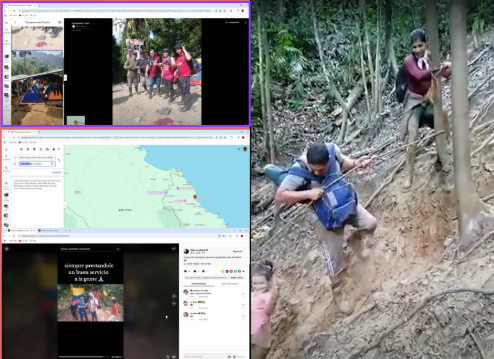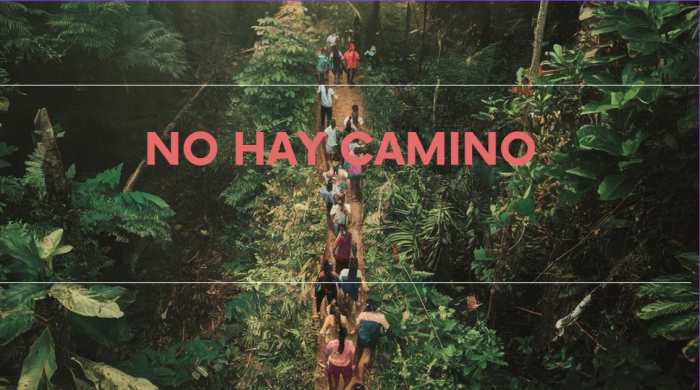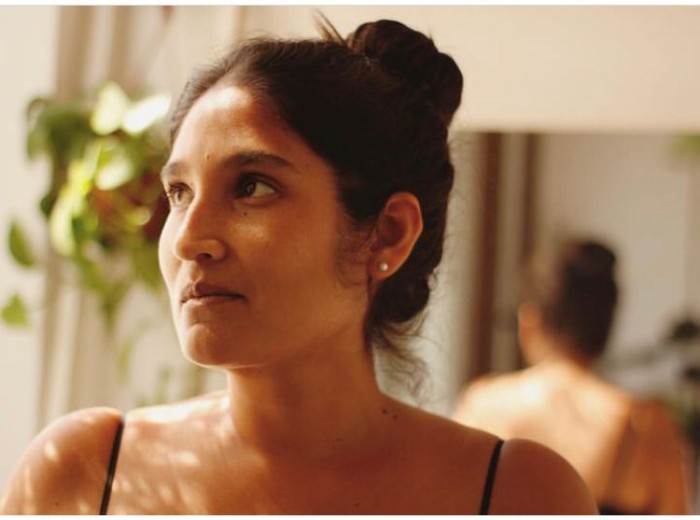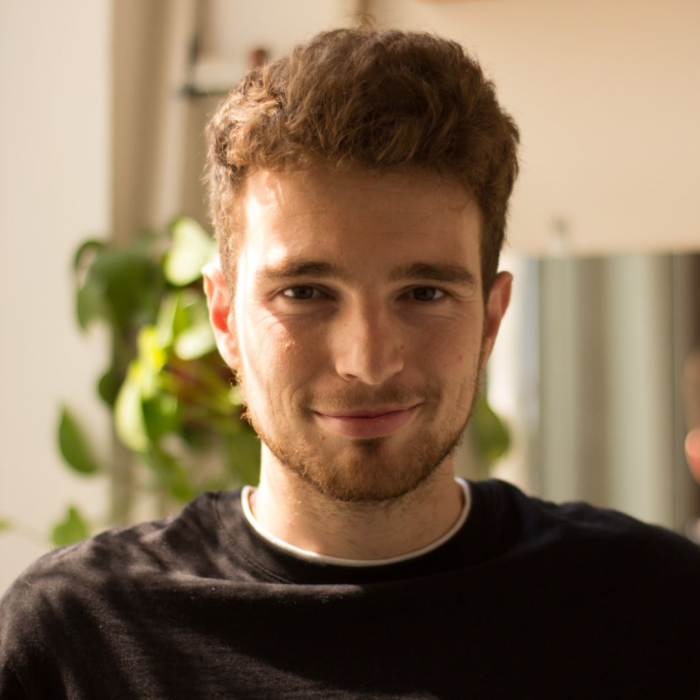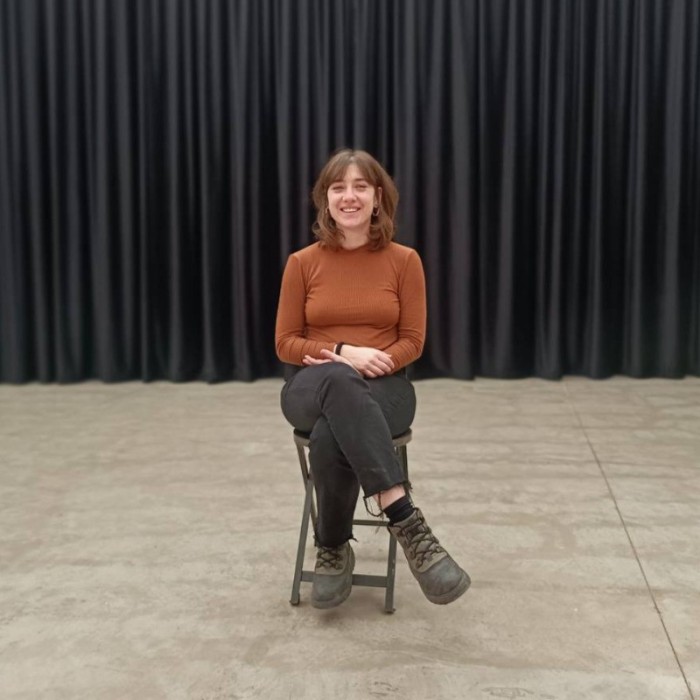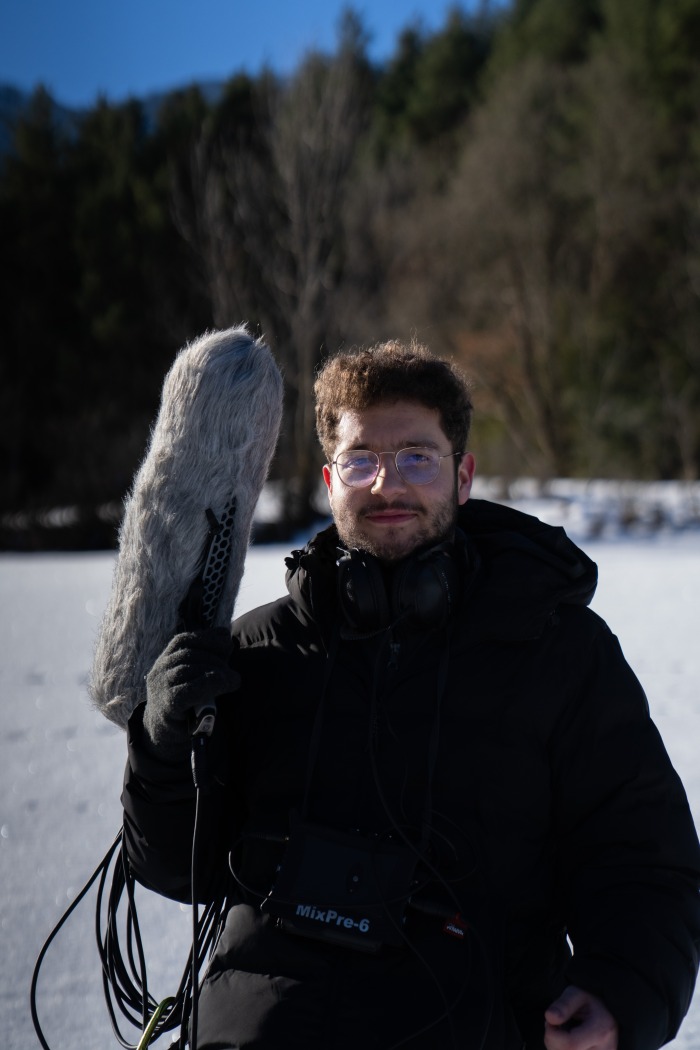THERE IS NO PATH is a short documentary film based on videos recorded by migrants crossing the Darien Gap, a dense jungle between Panama and Colombia that marks, for many, the beginning of the route to the United States. Using real images shared on social media, the film reconstructs a collective archive of one of the most dangerous migration routes in the world. The project rescues these invisible voices and presents them from an ethical and sensitive perspective, far from media sensationalism.
THERE IS NO PATH is a short documentary film created from footage recorded by migrants crossing the Darien Gap. Its main feature is that it is constructed almost entirely from citizen footage shared on social media, becoming a collective archive on contemporary migration in Latin America. Unlike other projects, it does not observe from the outside: it is the migrants themselves who narrate and record their experience.
Objectives:
Complete post-production of the short film.
Distribute the film at festivals, educational venues, and digital platforms.
Raise awareness of migration routes from an ethical, non-sensationalist perspective.
Promote social dialogue on migration, borders, and human rights.
Contribute to the preservation of a public audiovisual archive on the Darién Gap.
The idea for THERE IS NO PATH came about when we saw how migrants were risking their lives crossing the Darién Gap and, at the same time, recording and sharing their journeys on social media, not always showing the hardship of the journey, but also moments of fun, humor, and resilience.
These images reveal an intimate, raw, and deeply human view of migration that is rarely shown in the media. The project stems from a desire to preserve and amplify these voices, to accompany their stories with respect and without filters. It is aimed at those interested in human rights, migration, independent journalism, and new ways of narrating reality. It also seeks to reach migrant communities, social organizations, cultural centers, and people who believe in the power of cinema as a tool for memory and denunciation.
No Way is directed and produced by
Luciana Espinoza Hoempler, a documentary filmmaker focused on memory, grief, and forms of resistance. She has directed Azadi (Spain, 2023), Full Body (Cuba, 2019), and Mía (Peru, 2013). Her work explores the intersections between the intimate and the political through personal and collective archives. She was selected for the Berlinale Talent Campus Buenos Aires 2025 and the CIMA Mentoring 1to1 program (2025–2026). She is a founding member of AMA, the Association of Women and Dissidents in Audiovisual Media of Peru.
Here you can watch her latest short film:
CAS: https://youtu.be/F_SAhMamMSA?si=ktpqsZBVdXqGc1xE
ENG: https://youtu.be/mbXcFwH8_9Q?si=C1Oy9EO-PZPuYeio
She also has the following post-production and distribution team:
Estella Marcos Faura — Editor
(Barcelona, 1990) is a film editor and documentary filmmaker. She co-directed and edited 'Vivir la muerte' (2024) and 'Cuidar entre tierras. Quién sustenta la vida cuando las mujeres migran?' (2019). She also directed 'Por amor' (2025), her first short documentary. Her work highlights the political potential of everyday scenes and their relationship to film archives, inevitably from a feminist perspective. He studied audiovisual editing at UPF (2024) and documentary filmmaking at UAB (2025-2026).
Portfolio: bit.ly/49uwCfE
Daniel Miranda — Sound Design and Post-Production
Daniel Miranda is a sound designer and editor trained at ESCAC, with over four years of experience in the film industry. He has participated in projects such as Cinematoomo & Sons, Parenostre, and El mal invisible.
Juan Luis Ortega — Distributor (Talasa Films Distribution)
A documentary filmmaker and independent distributor born in Seville, Spain. His work focuses on the creation and distribution of films with social themes and a politically engaged approach, exploring formal and narrative proposals that are experimental and highly creative. A graduate of the Master's Program in Theory and Practice of Creative Documentary at UAB, his works have been selected for festivals such as Zinebi, Sitges, and FIWOM, among others. She currently runs Talasa Films Distribution, a platform dedicated to the promotion and distribution of independent and socially conscious cinema.
The team works collaboratively, utilizing its own resources and support networks within the documentary and non-profit sectors, with the goal of completing post-production and ensuring the short film's international distribution.
